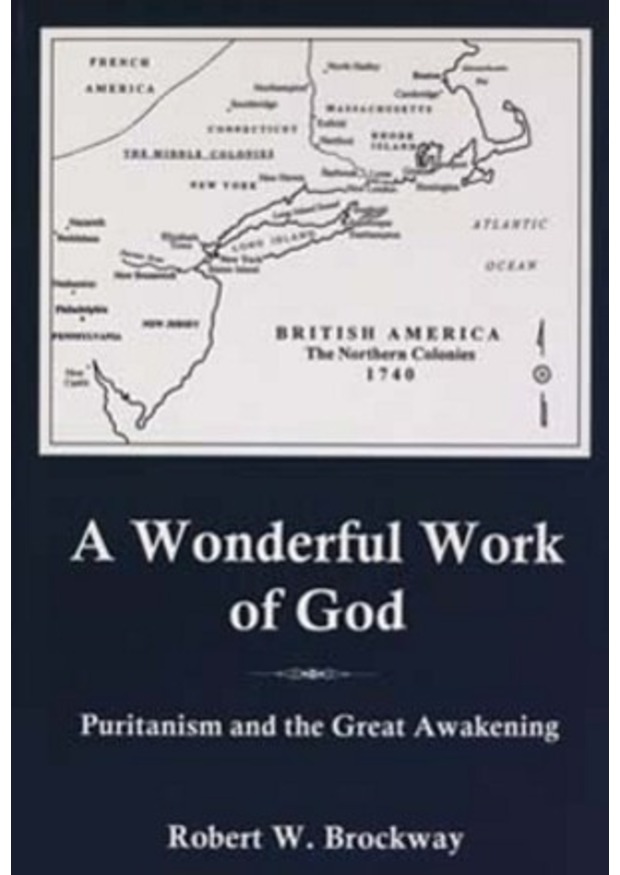Puritanism and the Great Awakening
A Wonderful Work of God: Puritanism and the Great Awakening is a survey of the American phase of the Evangelical Revival which swept Britain and her American colonies during the first half of the eighteenth century. Preceded by local revivals, such as the one stirred by Jonathan Edwards in Northampton, Massachusetts, in 1734, the Great Awakening exploded into a mass movement because of the itinerant preaching of a young Anglican priest, George Whitefield, and a number of Congregational and Presbyterian ministers who joined him in the evangelical work. However, because of the bizarre behavior of some of the radical evangelicals, such as James Davenport, the movement soon became highly controversial and split colonial ministers and congregations into "Friends of Revival" and "Opposers." As the revival excitement abated, schisms beset congregations in New England and eastern Long Island, resulting in the appearance of separate churches, and the Philadelphia Presbyterian synod was fractured as well.
Drawing on both original sources and a review of the relevant literature, the author places the Great Awankening in the context of the Puritanism of the times, both in Europe and the colonies, and discusses its roots in German Pietism and the Methodist revivals in England. The significant figures of the Awakening and their interactions are brought to life, particularly James Davenport, the Awakening's most bizarre exponent and the preacher who, more than any other, was responsible for bringing it into disrepute.
The Great Awakening has been seen by some revisionist scholars as an important prelude to the American Revolution and the growth of egalitarian democracy, and by others as essentially a promotionalist invention on the part of George Whitefield, the other revivalists of the time, or the Congregational ministers of the early nineteenth century who adhered to Jonathan Edwards's New Divinity. The author contends that the Great Awakening, though probably not a significant factor in the American Revolution, likely did provide a temporary stage for an emergent class struggle, and though he acknowledges the importance of promotionalism in its spread, he nonetheless maintains that the Great Awakening was a coherent movement of great religious significance.
Though many of its effects were transitory, some proved to be enduring. One of these was the emergence of evangelicalism among New Lights in New England (and the New Sides in the middle colonies) who subsequently became Baptists, and, as such, later spread the evangelical message throughout the South and also in Nova Scotia. Another was the shattering of the doctrinal consensus in New England that led to the emergence of the New Divinity school of Calvinist orthodoxy on the one hand, and to the eventual appearance of American Unitarianism on the other. It can also be argued that the nature of contemporary evangelicalism, its preaching style, and most of its religious content owe much to the itinerants of the Awakening.













